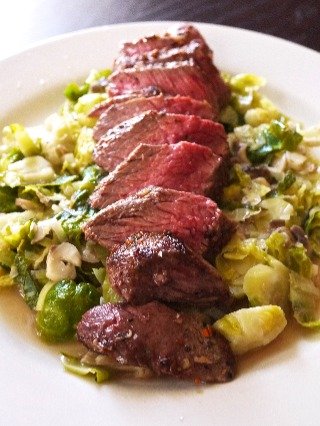A low carb diet reviews about the generic list of diets that reduce carbohydrates, refined sugar, and processed food in the diet, to reduce weight and reduce people's reliance on diabetes medication. Putting your body into a state of ketosis requires your blood sugar levels to drop significantly, hence the fat loss. Read on for an in-depth review.
On This Page
- Key Takeaways from a Low Carb Diet Review
- Low Carb Diet Reviews 2020 – Rip-Off or Worth a Try?
- A Medical Doctor's Diet Review
- Low Carb Diet Reviewed as Being “Only for Losers”
- Keto vs Low Carb (Paleo, Atkins, Whole30, and More)
- Dietitian’s Keto Diet Review
- Type 2 Diabetes vs Ketogenic Diet Review
- Cancer vs Keto Diet Review
- Weight Loss vs Ketogenic Diet Review
- Thoughts on the Low Carb Diet Reviews We've Seen
- Low Carb Diet Reviews
- Weight Loss Diet Review
- Keto and Other Low Carb Diet Reviews
Key Takeaways from Low Carb Diet Reviews
Low carb is often seen as synonymous with the Keto diet. You likely automatically think it's a low-carb diet. While it's true that keto requires low-carb eating, it's also a lot more than that. To be successful on the keto diet, you have to take all of your macronutrients into consideration: carbohydrates, protein, fat, and calories. The main difference between the ketogenic diet and the typical low-carb diet like the Atkins diet or south beach diet is the fat content.
 While most low-carb diets use reducing total carb intake as the main focus of the diet, the keto diet adds the goal of replacing the calories from carbohydrates with healthy fat calories, specifically. The goal is to change how your body burns fuel. Additionally, the vast majority of information you'll find on the keto diet doesn't mention calories as much as the other three main macros, but if you're trying to lose weight, that detail does matter. Let's review the key aspects of the keto diet and other low-carb diets to help you figure out which diet is best for you.
While most low-carb diets use reducing total carb intake as the main focus of the diet, the keto diet adds the goal of replacing the calories from carbohydrates with healthy fat calories, specifically. The goal is to change how your body burns fuel. Additionally, the vast majority of information you'll find on the keto diet doesn't mention calories as much as the other three main macros, but if you're trying to lose weight, that detail does matter. Let's review the key aspects of the keto diet and other low-carb diets to help you figure out which diet is best for you.
In providing this low carb diet review we do wish to point out that a low carb diet is not a diet program that is offered as such. Neither is there a specific diet supplement that can be purchased. Therefore there are not any actual “reviews of a specific product” that we can provide. There have been many people to successfully lose weight with the ketogenic diet as they are going through it.
The fact is that the moment they start letting carbs, refined sugar, and processed food back into their diet, the weight will come back on. Putting your body into a state of ketosis requires your blood sugar levels to drop significantly, hence the fat loss.
Low Carb Diet Review 2020 – Rip-Off or Worth a Try?
Many investigations have confirmed that employing a low carbohydrate and high-fat diet over several months or various years does not point to metabolic irregularities or critical antagonistic effects, as long as it satisfies adequate energy and satisfactory amounts of protein. Opposite to the traditional notions that diets high in fat would increase the risk for obesity, cardiovascular disease, and diabetes, several analysis and reviews show that long-term low carbohydrate and high-fat diets diminish these metabolic risk factors. (Bueno, 2013) ultimately, long-term low carbohydrate and high-fat diets appear to be safe and can even improve chronic disease in many individuals.
It seems to be a promising way to control weight and fat mass as long as the person losing weight is engaged in high-intensity activities as part of their weight loss or maintenance plan. It may take varying amounts of time, amounting to months for the body to adjust to a low carbohydrate and high-fat diet. During this time, the body will start to experience metabolic changes and even the restoration of muscle glycogen.
Low carb and high-fat diet were able to improve levels of cognition, motor abilities, and levels of perceptual after one to two years in a recent study. On balance, our view is that a low carb diet may indeed be worth try, depending on your health and reasons for dieting. (Always consult a medical expert before starting a diet.)
A Medical Doctor's Diet Review

It is a common narrative in the mainstream and scientific media that low-carbohydrate diets are difficult to stick to. However, this is actually not matched by the evidence.
A systematic review of long-term (6-36 month) low-carbohydrate diets vs low-fat, calorie-restricted diet interventions showed an overall attrition rate of 36%, with a higher rate of attrition in low-fat, high-carbohydrate interventions 3 in these studies, 11 of 13 compared ad libitum lower-carbohydrate (and higher-protein) diets to calorie-restricted higher-carbohydrate diets. The higher adherence rates to low-carb were not assigned to any clear reason.
Turn off the fat genes – A Book Reviewed by David Snape
David Snape has provided a Low Carb Diet Review, saying that:
“Once in a while, a good title comes along and “turn off the fat genes” is one of those titles that just have to be written about. If you are not familiar with Dr. Neal Barnard's work, he has been writing about how to lose weight on a high carbohydrate diet for at least a decade now. I'm amazed, as you might be, that his work is not better known. There are a number of advantages to using a high carb diet and as many disadvantages to the low carb/ high protein diets.”
The Ketogenic Diet and Childhood Epilepsy
Since 1920, the Ketogenic diet has been recognized as an effective tool in the treatment of severe childhood epilepsy, but following the introduction of anticonvulsant drugs, the interest in ketogenic diet treatment waned until the 1990s, with subsequent research and clinical trials demonstrating its practical usefulness.
Various studies have been carried out to understand its mechanism of action in epilepsy, but until now it remains largely uncertain. 5 several hypotheses have been put forward trying to explain the mechanism of action of ketogenic diets:
- a direct anticonvulsant effect of Lower Blood Sugar levels;
- reduced neuronal excitability induced by KBS
- an effect on the mammalian target of rapamycin pathway.
In 2008, Hartman et al. demonstrated the efficacy of a ketogenic diet in the 6-Hz seizure test in mice, but also reported that the protection from seizures was not related to the level of ketosis in the blood, indicating that mechanism(s) of action other than those directly linked to the blood concentration of KBS should be investigated. Most researchers suggest that the metabolic mechanism(s) activated by ketogenic diets (see above) may influence neurotransmitter activity in neurons and this is currently a field of active research.
Low Carb Diets Reviewed as Being “Only for Losers”
The following review we found, is very negative for the benefits of a Low Carb Diet.
“One thing we know about diets and weight loss is that they don’t work. I’ve written about this in-depth with regards to the participants on the biggest loser. This was evident in a study analyzing 31 long term studies on dieting, which found 2/3 of dieters put back the weight they lost. Other research has reported the failure rate may be as high as 95%. Any diet that is restrictive and unrealistic may be nearly impossible to sustain.”
Our opinion to take-away from this low carb diet review is that a Keto Diet can be applied flexibly and incorporated within a more healthy lifestyle change can be effective. There is a lot to enjoy about some of these low carb diets, and you may just get to like them!
Keto vs Low Carb (Paleo, Atkins, Whole30, and More)

In the world of weight-loss diets, low-carbohydrate, high-protein eating plans often grab attention. The paleo, south beach, and Atkins diets all fit into that category. They are sometimes referred to as ketogenic or “keto” diets. But a true ketogenic diet is different.
Unlike other low-carb diets, which focus on protein, a keto plan centers on fat, which supplies as much as 90% of daily calories. And it's not the type of diet to try as an experiment. “the keto diet is primarily used to help reduce the frequency of epileptic seizures in children. While it also has been tried for weight loss, only short-term results have been studied, and the results have been mixed. We don't know if it works in the long term, nor whether it's safe,” warned a registered dietitian at that time.
At the height of the Atkins craze in the early 2000s, a Gallup poll found that 27 percent of Americans said they were avoiding carbohydrates. And while Atkins still has its devotees, other low-carbohydrate plans, like Paleo, are getting more attention these days. The latest popular low-carb approach is the Ketogenic diet, a very low-carbohydrate, high-fat, moderate-protein plan. The premise: cut back on carbohydrates and sugars so that the body burns fat for fuel instead of carbs (its preferred source) in a metabolic state called ketosis.
This diet theory, consisting of 10% or less of daily calories from fat, is the flip-side to Atkins, Keto, and Paleo. Proponents of the ultra-low-fat approach adhere to a diet rich in plant foods, low in animal products, and high in carbohydrates (80% or more of daily caloric intake). An example of this type of theory is the TLC (Therapeutic Lifestyle Changes) diet created by the national heart, lung, and blood association with the purpose of helping people combat heart disease, lower cholesterol levels, and prevent digestive problems.
A Dietitian’s Keto Diet Review
Even though he isn’t a fan of diets in general – “I prefer habits,” he says – Chokshi recognizes the benefits of Keto for some patients looking to lose weight and make a healthy change in the short term. Many have had success with dropping pounds, he says, and reported feeling “healthier and more fit. ” it’s even better if it kickstarts a more sustainable healthy lifestyle. He also suspects there are some benefits for the heart and reversing diabetes since it has been shown to improve insulin sensitivity. That’s supported by several studies, like a 2017 review in the journal nutrients that found that the Keto diet improved HDL “good” cholesterol levels and helped reverse the course of type 2 diabetes in patients by controlling blood sugar levels, though “usually in limited time,” the researcher wrote. In 2018, another study in the journal diabetic medicine found the keto diet in patients with type 1 diabetes was associated with “excellent levels” of blood sugar.
This really depends on which diet specifically you are looking into, however, there are many opinions circulating out there about weight loss and this style of diet. Overall, this style diet was labeled a fad, but that label quickly sweltered and fizzled. There are many out there to review, which is why I wanted to add in a few reviews from different low carb diets like Atkins and the ketogenic diet. The people who have gone through these different diet programs all have different goals and journeys, which is what makes the reviews interesting to evaluate. First, I wanted to look at the Atkins diet, as this diet was criticized for not allowing enough carbs for healthy body function. There is a lot of protein involved and eggs are one of the main foods to eat! – Gracie (2013).
Type 2 Diabetes vs Low Carb Diet
There are several hypothetical concerns of the long-term safety of low-carb diets that deserve mention. Safety concerns of low-carb diets relate to ketosis, long-term cardiovascular safety, lipid, and renal effects. Nutritional ketosis can be induced in the keto diet, the induction phase, and any time where carb load is limited to <10% of macronutrient intake, or 20 to 50 gm/day of carbohydrates. However, there is no evidence that very-low-carb intake produces metabolic ketoacidosis and remains safe in patients, even with type 2 diabetes. While there have been cases of diabetic ketoacidosis (DKA) with concomitant sglt2 inhibitors in patients with type 2 diabetes, it is unclear if the very low carb approach can put an increased risk of DKA with sglt2 use. However, the recommendation is for caution with the use of ketogenic diets with concomitant use of sglt-2 inhibitors.

If you have heard of the ketogenic diet, an extremely low carb approach to eating, you may associate it with controversy and alternative treatments for obesity. Personal anecdotes in the media tell about astounding effects against obesity and type 2 diabetes. But the research is inconclusive, and we know very little about the long term effects of such a diet. Many professionals warn against a diet that is so high in fat. Nevertheless, there is a growing interest in this extreme high-fat diet among researchers. In 2019 alone, more than a thousand new research articles were written on the topic.
It is well-established that fiber within any diet can help improve gut health, benefit gut flora, boost weight loss, and lower the risk of heart disease, and type 2 diabetes. Most Americans get on average 15 grams of fiber a day, which is less than the recommended amount. Being on a ketogenic diet isn’t much different. Many fiber-rich foods also contain carbs and carbs aren’t keto-approved. But, the good news is that certain foods are keto-approved and rich in fiber! Seek out the many fiber supplements on the market and be sure to include those that are a perfect fit for keto dieters as they’re low in carbs and naturally high in fiber.
Cancer vs Keto Diet Review
We have solid evidence showing that a ketogenic diet reduces seizures in children, sometimes as effectively as medication. Because of these neuroprotective effects, questions have been raised about the possible benefits for other brain disorders such as Parkinson's, Alzheimer's, Multiple Sclerosis, sleep disorders, Autism, and even brain cancer. However, there are no human studies to support recommending ketosis to treat these conditions. Weight loss is the primary reason my patients use the ketogenic diet. Previous research shows good evidence of a faster weight loss when patients go on a ketogenic or very low carbohydrate diet compared to participants on a more traditional low-fat diet, or even a Mediterranean diet. However, that difference in weight loss seems to disappear over time.
History of Ketogenic Diets
Given the recent media publicity, people would be forgiven for believing the ketogenic diet is a “new” thing. Interestingly, the diet has been around for more than a century, with its roots going back to the 1920s. At that early point, the ketogenic diet was trialed as a dietary therapy for epilepsy in children. Until recently, ketogenic diets were mostly known as a potential intervention for epilepsy, for which they are one of the default treatment options. Systematic reviews examining the effectiveness of ketogenic diets for epilepsy are positive too.
Characteristics of the Low Carb Keto Diet
Keto is a low carb, moderate protein, high-fat diet and it is the latest diet rave. Not only do many people claim that it helps you achieve a rapid weight loss but they also claim that it may be beneficial for those with diabetes, epilepsy, migraine headaches, inflammatory illness, and some forms of cancer. These are the potential reasons that have so many dieters leaping into the keto lifestyle. As stated previously the basic concept is to consume a diet high in fat with a moderate amount of protein and a low amount of carbs. This is calculated in percentages with 5% being the extreme for carbs and 7% to 10% being the average suggested amount. Fat intake should be at about 60% to 80% of your diet and protein around 20%.
Weight Loss vs Ketogenic Diet Review

A ketogenic weight loss program is a particular type of diet that is extremely low in carbohydrates. They're also referred to as “ketosis” diets. As you may already know, carbohydrates are often the body's key source of energy. They are broken down and the actual energy will be used for the daily functioning of one's body. If you reduce your carb intake too much, you can die, since there is no energy to fuel your body's normal functions. And so, it's a really good point that the body knows how to handle the situation. When your body is striving for carbs it automatically understands to begin looking to stored fats for energy. If perhaps you're following this properly your eyes could be lighting up by now. If you're planning to lose fat and a ketogenic diet makes your body make use of fat as the main fuel source, then surely unwanted fat will just burn away. Well yes, of course, it will, providing you are generally sticking to the basic calories in and calories out principle.
Overall, this website is filled to the brim with information for you to read about health and weight loss before even joining the program. If you can get through understanding and reading all of the key points on the website, then you will be on your way to understanding how the program works.
Many people following a ketogenic, or very low-carb diet, choose to stay in ketosis for the long-term, or until they reach their goal, whether that is weight loss, more energy or improved concentration. That means significantly restricting carbohydrates until further notice. Others choose to follow a dietary regimen that alternates these low-carb, fat-burning days with high-carb or “carb-loading” days. This dietary regimen is called carb cycling or keto cycling, depending on how significantly carbohydrates are restricted during low-carb days.
Thoughts on the Low Carb Diet Reviews We've Seen
For the first two to six months of the diet, we read that there’s evidence that a very low-carbohydrate diet can help you lose more weight than the standard high-carbohydrate, low-fat diet, according to a new literature review of low-carb diets by the national lipid association. “But, by 12 months, that advantage is essentially gone,” said Carol F. Kirkpatrick, Director of Idaho State University’s Wellness Center, and lead author of a literature review of these diets. After that, weight loss seems to equalize between those two popular diet regimens. She said keto was best used to kick-start a diet, before transitioning to a carb intake that you can adhere to for the longer term.
While extremely low-carbohydrate diets might be very good short term for weight loss, the picture on the effects on health markers that can contribute to heart disease risk and much less certain, according to new recommendations from the National Lipid Association. Based on a review of existing research, the scientific statement emphasizes some advantages of a ketogenic, or very low-carb diets, including appetite suppression, lower lipid levels, and lower blood sugar in people with diabetes. But a keto diet is also associated with spikes in the “bad” cholesterol that can build up in blood vessels and lead to clots, known as low-density lipoprotein cholesterol (LDL-c).
Low Carb Diet Reviews on “Carb Cycling”
if you've been reading a variety of the fat-loss diet literature that's available, you've very likely come across a technique called “carb cycling.” essentially carb cycling is a program where you mix higher carbohydrate days with lower carbohydrate days in the effort to lose weight without suffering some of the negative consequences of a pure low carbohydrate diet plan. Some of these negative side effects include a drop-in exercise performance, increased hunger, and craving levels, lowered metabolic rate, and difficulty focusing and concentrating at work or at school.
There are many fad diets these days that recommend that you eat a lot of meat. This is especially true with the low-carb diets. A good example of this is the Atkins diet which is high fat and low carbohydrate diet. The theory that these diets follow is read.
A low-carb, high-fat diet (LCHF) involves using ketones from fat for energy instead of glucose, which comes directly from carbohydrates. When a person significantly reduces or limits the number of carbs they consume in a day, it forces the body to use fat stores as fuel, which may lead to weight loss. However, science does not always agree on the safety of LCHF diets. Although some research supports its use to help a variety of health conditions, other studies report that LCHFdiets can be dangerous.
Weight Loss Diet Reviews
Vitamin b12 helps the body develop healthy red blood cells. When there isn't enough b12, red blood cells grow too large, making it difficult for them to pass through the necessary pathways to deliver oxygen. Megaloblastic anemia is one name for this condition. The most common symptom of this deficiency is fatigue, but weight-loss, shortness of breath, and nausea are other symptoms. Megaloblastic anemia caused by b12 deficiency is often treated with monthly b12 injections, along with a diet rich in vitamin b12.
Being on a weight loss diet plan need not mean that you have to give up on all your favorite foods. If you love lasagna but fear that it will send your diet off course, then this article is for you.
Although many randomized controlled trials of low carbohydrate diets suggest beneficial short-term weight loss and improvements in cardiometabolic risk, mortality risk has typically not been investigated in light of the practical challenges posed by studies involving very long durations of follow-up. Data from large prospective cohorts have been used to estimate the long-term health effects of low carbohydrate diets, but have generated conflicting results. For instance, the meta-analysis of large cohort studies in North America and Europe has suggested increased mortality associated with low carbohydrate intake.
Conversely, recently published multinational and Asian studies have reported increased mortality in association with high carbohydrate intake. Most previous studies have reported the risk of mortality on the basis of the range of carbohydrate intake specific to the population studied, thus limiting both interpretability and generalisability. Furthermore, many previous studies of carbohydrate intake have not accounted for the potential effects of food sources.
Keto and Other Low Carb Diets
Some of the most popular commercial diets commonly considered high in protein and low in carbs don’t truly fit into either category in this Low Carb Diet Review. Notably, many people regard the Zone Diet and Sugar Busters Diet as high protein, low carb. However, these diets are moderate in carbs, as they typically provide about 40% of calories from carbs. Additionally, many popular low carb diets, such as Atkins and ketogenic diets, are not considered to be high protein, low carb. Instead, they’re high fat, low carb or high fat, very low carb, and they only contain moderate amounts of protein.
Before we delve into specifics, let’s cover what a keto diet entails. With this diet, you’ll consume high levels of fat, moderate levels of protein, and low levels of carbohydrates. Why this balance?
your body uses carbohydrates to create glucose, which is the primary energy source for most of the cells in your body, including those in your brain and central nervous system. Every time you eat a carb, it breaks down into glucose. Your body stores this glucose in one of two ways: as glycogen in your liver and muscle tissue or as excess fat in your adipose cells.

When it comes to dieting, we all well aware of the struggles that come with it. Protein and fats are 2 staples of the keto diet, therefore investing in a good, natural keto protein powder that contains low carb is really important. But, here is the challenge i tried many well-known products throughout the year (many from famous brands), but almost all of them failed to deliver results (fitness level / overall health), or taste (important in my book – for stickiness factor/ habit).
The South Beach Diet is sometimes referred to as a modified low-carbohydrate diet. Instead of guaranteeing fast results, the South Beach Diet emphasizes on losing weight the healthy way. This is achieved by teaching you how to eat the right carbs and fats that will replenish the body, and avoid unhealthy choices. For example, simple carbs are replaced with complex carbs, and trans-fats and saturated fats are replaced with unsaturated fats. Unlike some other low-carb diets, there is no strict low-carb rule and carb-counting rule. It mainly stresses the importance of taking in a relatively low amount of carbs, a high intake of protein, and a moderate intake of fat.
I've tried my fair share of weird weight-loss strategies, none of which I wind up maintaining long-term because of the crazy restrictions. But in the summer of 2016, my parents started their own journey on the low-carb diet, and after seeing each of them successfully shed some pounds, I decided to give the diet a try for myself and see what kind of low-carb diet results I'd get. Diets that minimize carbs go by many names. Chances are you've heard people refer to the Atkins, South Beach, or Keto (short for “Ketogenic”) diets. For the purposes of my experiment, I followed the rules laid out by Susan Kleiner, Ph.D., R. D. author of power eating. Since I work-out moderately at least three times a week, I planned to consume 100 grams of carbohydrates per day on the plan—and that was the only rule. Considering cheese is naturally low in carbs (and was the hardest thing to give up during my bouts of paleo and whole30), I figured I'd finally met my perfect weight-loss match.




